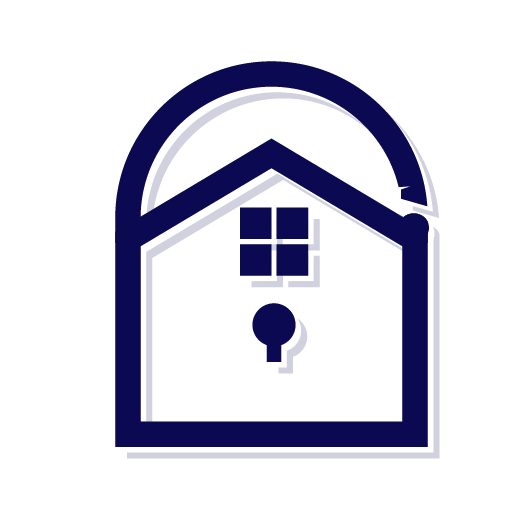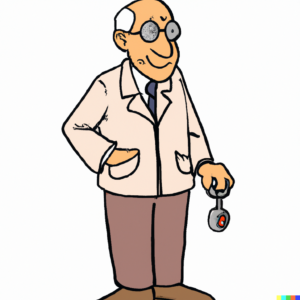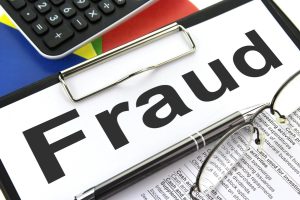You may think that making your home safer for elderly family members requires a complete overhaul, but in reality, small changes can make a significant difference.
From improving lighting to utilizing technology, there are several practical steps you can take to enhance home safety for older adults.
By addressing key areas like fall prevention and emergency preparedness, you can create a secure environment that promotes independence and peace of mind.
Stay tuned to discover essential tips that can help you ensure a safer living space for your elderly loved ones.
Lighting

When improving home safety for elderly family members, ensuring adequate lighting is crucial to prevent accidents and provide a sense of security. Nighttime visibility is particularly important as reduced light levels can increase the risk of falls and other mishaps.
To enhance nighttime visibility, consider using night lights in hallways, bathrooms, and bedrooms. These subtle sources of light can help seniors navigate their way around the house during the night without the need for bright overhead lights that might disrupt sleep patterns.
Lamp placement plays a significant role in improving lighting within the home. Make sure that there are lamps near frequently used areas such as seating areas, desks, and bedside tables. Floor lamps with adjustable arms can provide targeted lighting for reading or other activities.
Additionally, consider installing motion-activated lights in key areas like staircases, closets, and entryways to ensure that there's ample light when needed most.
Fall Prevention
To reduce the risk of falls for elderly family members, prioritize ensuring a clutter-free environment with clear pathways and secure handrails where needed. Creating a safe space is crucial in preventing accidents. Implementing balance exercises into daily routines can significantly enhance stability and coordination, reducing the likelihood of falls. Additionally, considering the use of hip protectors can provide an extra layer of protection in case of a fall, minimizing the risk of hip fractures or injuries.
When it comes to fall prevention, incorporating these measures into your home can make a substantial difference in ensuring the safety of your elderly family members:
| Fall Prevention Measures | Description | Benefits |
|---|---|---|
| Clear Pathways | Remove obstacles | Prevent tripping hazards |
| Secure Handrails | Install along stairs | Aid in balance and support |
| Balance Exercises | Include in daily routine | Improve stability |
| Hip Protectors | Protective gear | Reduce impact of falls |
Bathroom Safety

Ensuring bathroom safety for elderly family members is essential to maintaining their well-being and independence in their daily routines. The bathroom can pose various risks due to wet surfaces and slippery floors, but there are simple measures you can take to enhance safety and prevent accidents.
Installing bathtub grab bars can provide much-needed support for your loved ones when entering or exiting the tub or shower. These bars offer stability and help prevent slips and falls, giving your family members the confidence to navigate the bathroom independently.
Additionally, placing non-slip mats on the floor of the bathtub or shower can further reduce the risk of falls by providing traction on wet surfaces.
Medication Management
To effectively manage your elderly family member's medications, creating a clear and organized system is key to ensuring their health and safety. Pill organization plays a crucial role in this process. Start by setting up a pill organizer with compartments for each day of the week, making it easier to track which medications have been taken. Ensure that all prescriptions are clearly labeled with the name, dosage, and frequency of each medication.
Caregiver support is also essential for successful medication management. Communicate regularly with your loved one's healthcare provider to stay informed about any changes in medication or dosage. It's vital to have a list of all medications, including over-the-counter drugs and supplements, to share with healthcare professionals during appointments.
Consider creating a medication schedule that includes specific times for each dose. This can help prevent missed doses or accidental double doses. Additionally, keep an updated medication list in a visible and easily accessible place in case of emergencies.
Regularly review the medication regimen with the healthcare provider to ensure it aligns with your loved one's current health needs. By staying organized and seeking caregiver support, you can effectively manage your elderly family member's medications and promote their overall well-being.
Emergency Preparedness

Creating a comprehensive emergency plan is crucial for ensuring the safety and well-being of your elderly family members in unexpected situations. Start by developing an evacuation plan tailored to their abilities and needs. Identify escape routes, designate meeting points, and ensure they have easy access to essential items like medications, medical records, and important documents. Practice the evacuation plan regularly to familiarize everyone with the process and make necessary adjustments if needed.
In addition to the evacuation plan, establish a clear communication strategy. Make sure your elderly loved ones have easy access to emergency contact numbers, including family members, neighbors, and local emergency services. Consider providing them with a charged cell phone, a list of contacts, and instructions on when to call for help. Encourage them to keep a list of their medications and any relevant medical information in an easily accessible place in case emergency responders need this information.
Remember to involve your elderly family members in the planning process. Discuss the emergency plan with them, address any concerns they may have, and ensure they understand what to do in different scenarios. By working together to create a solid emergency preparedness strategy, you can help ensure the safety and well-being of your elderly family members in times of crisis.
Home Security
In order to enhance the overall safety and well-being of your elderly family members, consider implementing effective home security measures that cater to their specific needs and circumstances. One way to boost home security is by installing smart locks. Smart locks provide convenience and peace of mind, allowing your loved ones to lock and unlock doors remotely, eliminating the need for physical keys that can be lost or misplaced. Additionally, surveillance cameras can be a valuable addition to your home security system. They offer real-time monitoring and recording capabilities, enabling you to keep an eye on your elderly family members even when you are not physically present.
| Benefits of Smart Locks | Benefits of Surveillance Cameras |
|---|---|
| Enhanced convenience | Real-time monitoring |
| Increased security | Recording capabilities |
| Remote access control | Peace of mind |
Technology Integration

For better integration of technology in enhancing home safety for elderly family members, consider gradually introducing smart devices that can assist in monitoring and ensuring their well-being. Smart devices like motion sensors, smart cameras, and wearable alert systems can provide an added layer of security and peace of mind for both you and your loved ones. These devices can help in remote monitoring, allowing you to keep an eye on their well-being even when you aren't physically present.
Motion sensors placed strategically around the house can alert you to any unusual movement or lack thereof, indicating a potential issue. Smart cameras offer live video feed that you can access through your smartphone, enabling you to check in on your elderly family members at any time. Wearable alert systems with fall detection capabilities can automatically send out distress signals if a fall or sudden health issue occurs.
Frequently Asked Questions
How Can I Make Sure My Elderly Family Member Is Staying Socially Connected and Engaged While at Home?
Feeling isolated? You can boost your elderly family member's social connection by introducing them to virtual book clubs or online crafting tutorials.
These platforms provide avenues for engagement and interaction from the comfort of home. Encourage them to explore new interests and connect with like-minded individuals.
Are There Any Specific Exercises or Activities That Can Help Improve Balance and Strength in Older Adults to Prevent Falls?
To boost balance and strength in older adults, consider incorporating chair yoga and Tai Chi into daily routines. These gentle activities can enhance stability and flexibility.
Additionally, engaging in strength training and balance exercises, like leg lifts or standing on one leg, can help prevent falls.
What Are Some Tips for Organizing and Managing Multiple Medications for an Elderly Family Member?
You're not alone in feeling overwhelmed by the task of managing multiple medications for your elderly loved one. Organizing pills and keeping track of schedules can be challenging, but with caregiver support and a system in place, you can tackle it.
Look into medication organizers, set up pill reminders, and always stay informed about potential drug interactions.
Your dedication and attention to detail will ensure your loved one's health and safety.
How Can I Create a Personalized Emergency Plan for My Elderly Family Member in Case of a Natural Disaster or Medical Emergency?
When creating a personalized emergency plan for your elderly family member, consider different scenarios like natural disasters or medical emergencies.
Develop contingency plans for each situation. Identify safe exits, assemble emergency kits with medications and essential items, and establish communication strategies.
Ensure your elderly loved one knows the plan and practice it together. Stay informed about community resources and emergency services available to support your family member during challenging times.
What Are Some Innovative Technologies That Can Help Older Adults Stay Safe and Independent at Home?
When it comes to staying safe and independent at home, there are some innovative technologies you might find helpful. Smart sensors can alert you to potential hazards or unusual activity, keeping you informed and secure.
Wearable devices offer the convenience of having emergency assistance at your fingertips, giving you peace of mind while maintaining your independence. These tools can empower you to feel more confident and in control within your own home.


